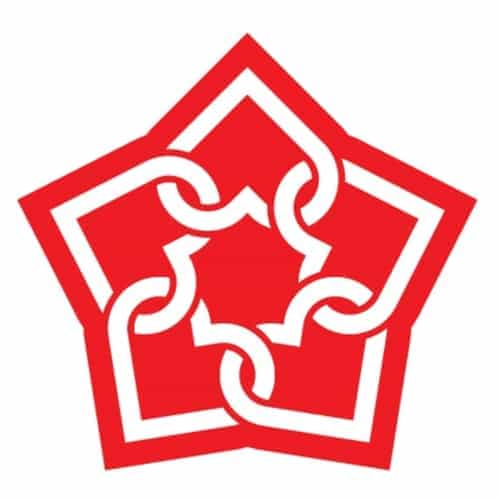Is Gastric Sleeve Surgery in Turkey Highly Successful?
Gastric sleeve surgery, formally known as Sleeve Gastrectomy, is a widely performed bariatric procedure designed to help individuals achieve significant and sustainable weight loss. It involves surgically removing approximately 70-85% of the stomach, transforming it into a smaller, tube-shaped "sleeve." This new, smaller stomach restricts food intake and reduces the production of ghrelin, the hunger-inducing hormone, leading to decreased appetite and earlier satiety.
When considering gastric sleeve surgery in Turkey, patients often prioritize understanding the success rate to ensure they are making an effective and worthwhile investment in their health.
What is the success rate of gastric sleeve surgery in Turkey?
"The reported success rate of gastric sleeve surgery in Turkey from highly reputable, high-volume bariatric centers is comparable to international standards, with patients typically achieving 50% to 70% of excess weight loss (EWL) within 12-18 months post-surgery, and very high rates of obesity-related comorbidity resolution."
It's crucial to understand that "success" in bariatric surgery is often measured by achieving a significant percentage of excess weight loss (typically 50% EWL or more) and the resolution or significant improvement of obesity-related health conditions like type 2 diabetes, hypertension, and sleep apnea. Turkish clinics often cite high patient satisfaction rates, sometimes exceeding 90-95%, indicating positive outcomes for a large majority of their patients.
How is the success rate of gastric sleeve surgery typically measured?
"The success rate of gastric sleeve surgery is typically measured by two primary metrics: percentage of excess weight loss (%EWL), with 50% or more considered successful, and the resolution or significant improvement of obesity-related comorbidities."
When evaluating the effectiveness of gastric sleeve surgery in Turkey (or anywhere else), these are the key indicators:
- Excess Weight Loss (%EWL): This is the most common metric. It's calculated by taking the total weight lost and dividing it by the patient's excess weight (current weight minus ideal body weight). For gastric sleeve, achieving 50% to 70% EWL within 12 to 18 months post-surgery is generally considered a successful outcome. This indicates that the patient has lost half to nearly three-quarters of the weight they needed to lose.
- Comorbidity Resolution/Improvement: This refers to the impact of the surgery on obesity-related health conditions. Gastric sleeve surgery is highly effective in improving or resolving:
- Type 2 Diabetes: Often leads to remission or significant improvement in insulin sensitivity.
- High Blood Pressure: Reduction in blood pressure, often allowing patients to reduce or discontinue medication.
- Sleep Apnea: Significant improvement or resolution of obstructive sleep apnea.
- High Cholesterol/Dyslipidemia: Positive changes in lipid profiles.
- Joint Pain: Relief from weight-bearing joint pain (knees, hips, back).
- Quality of Life (QOL): While harder to quantify, improvements in physical function, emotional well-being, energy levels, self-confidence, and social life are crucial aspects of success often reported by patients.
Reputable bariatric centers in Turkey track and often publish their outcomes across these metrics, providing transparent data to prospective patients.
What are the reported excess weight loss percentages for gastric sleeve in Turkey?
"Reputable bariatric centers in Turkey report that patients undergoing gastric sleeve surgery typically achieve 50% to 70% excess weight loss (EWL) within 12 to 18 months post-surgery, with significant long-term weight maintenance."
Patients undergoing gastric sleeve surgery in Turkey often experience a rapid initial weight loss, followed by a more gradual decrease, before stabilizing.
- Initial Rapid Loss: Patients can expect to lose a significant portion of their excess weight (e.g., 30-50% EWL) within the first 6 months.
- Continued Loss/Stabilization: Weight loss typically continues until about 12-18 months post-surgery, where it stabilizes.
- Long-Term Maintenance: While the sleeve can stretch slightly over time (often by 18-24 months), adherence to mindful eating and portion control is crucial for maintaining weight loss. Many studies show that a large percentage of patients maintain significant EWL (e.g., 50-60%) even 5-10 years after surgery.
The consistency of these high EWL percentages from experienced surgeons in Turkey reflects their adherence to established surgical protocols and comprehensive patient support.
What are the comorbidity resolution rates after gastric sleeve in Turkey?
"Gastric sleeve surgery in Turkey achieves high comorbidity resolution rates, with type 2 diabetes remission or improvement reported in over 80% of patients, hypertension in 70-80%, and sleep apnea in over 90%."
The impact of the gastric sleeve on obesity-related health conditions is a significant benefit, often leading to a substantial improvement or resolution for many chronic diseases:
- Type 2 Diabetes: Gastric sleeve surgery can significantly improve insulin sensitivity, often leading to remission or better control of type 2 diabetes. This improvement can sometimes be seen even before significant weight loss occurs.
- Hypertension (High Blood Pressure): A large percentage of patients experience resolution or significant improvement, often allowing them to reduce or discontinue blood pressure medications.
- Sleep Apnea: The substantial weight loss almost universally leads to the resolution or significant improvement of obstructive sleep apnea, often eliminating the need for CPAP machines.
- Dyslipidemia (High Cholesterol/Triglycerides): Improvement in lipid profiles is seen in a high percentage of patients.
- Joint Pain: Relief from chronic joint pain, particularly in the knees, hips, and lower back, is very common as the weight burden on these joints is significantly reduced.
- Gastroesophageal Reflux Disease (GERD): While some patients may develop new or worsened GERD after sleeve, many existing cases of reflux can improve due to weight loss.
These high resolution rates underscore why gastric sleeve surgery is considered an effective medical intervention for managing severe obesity and its associated health challenges.
How do success rates of gastric sleeve in Turkey compare to international standards (e.g., US, Europe)?
"The success rates of gastric sleeve surgery in Turkey from highly reputable, high-volume centers are consistently comparable to, and often mirror, the success rates reported by leading bariatric programs in the United States and Europe, utilizing the same surgical techniques and high-quality equipment."
There is no inherent difference in surgical outcomes simply because the procedure is performed in Turkey. The key factors influencing success are universal:
- Surgeon Expertise and Volume: Highly experienced, board-certified bariatric surgeons who perform a large number of gastric sleeve procedures consistently achieve excellent results, regardless of geographic location. Turkey has many such high-volume surgeons, with some clinics stating over 40,000 operations annually across their teams.
- Facility Quality: Reputable Turkish hospitals and clinics that cater to international patients often have state-of-the-art operating rooms, modern equipment, and adhere to international safety and hygiene standards. Many are accredited by organizations like the Joint Commission International (JCI).
- Patient Selection and Compliance: Careful pre-operative screening of candidates and the patient's adherence to the rigorous post-operative dietary and lifestyle guidelines are crucial for long-term success. These are emphasized by good programs in both Turkey and Western countries.
- Long-Term Follow-up: While the initial surgery is in Turkey, long-term success relies heavily on sustained lifestyle changes and adherence to vitamin/mineral supplementation, often with virtual support from the Turkish clinic or local follow-up coordinated by the patient.
Patients should focus on researching individual clinic and surgeon outcomes and accreditations rather than making broad generalizations based on country.
What factors contribute to the high success rate of gastric sleeve surgery?
"The high success rate of gastric sleeve surgery is primarily driven by meticulous surgical technique by an experienced bariatric surgeon, comprehensive pre-operative patient selection and education, strict adherence to post-operative dietary guidelines, and sustained lifestyle changes."
Several elements synergistically contribute to the high success rates of the gastric sleeve:
- Surgical Technique: The surgeon's experience and precision in creating the smaller stomach sleeve are paramount. The procedure also involves the removal of the fundus, the part of the stomach that produces ghrelin (the hunger hormone), which contributes to reduced appetite.
- Patient Selection: A thorough pre-operative evaluation (medical, psychological, nutritional) ensures that only suitable candidates who understand the lifelong commitment are approved for surgery.
- Restriction and Hormonal Changes: The physical reduction in stomach size limits food intake, while the hormonal changes (reduced ghrelin, improved GLP-1 response) help decrease hunger and improve satiety signals.
- Patient Compliance: Strict adherence to the post-operative diet progression, consistent vitamin and mineral supplementation, and regular physical activity are non-negotiable for long-term success and preventing complications.
- Post-Operative Support: Comprehensive nutritional counseling, psychological support, and long-term follow-up from the bariatric team (or a coordinated local team) are vital for guiding patients through dietary changes, managing challenges, and monitoring for deficiencies.
Reputable clinics in Turkey emphasize all these factors to maximize patient success.
What are the potential challenges or risks that could impact the success rate of gastric sleeve?
"Potential challenges that could impact the success rate of gastric sleeve surgery include non-adherence to dietary and lifestyle guidelines (leading to weight regain), complications (e.g., leaks, strictures, reflux), and nutritional deficiencies if supplementation is not followed."
While gastric sleeve has a high success rate, patients should be aware of potential challenges and risks that, if not managed, could impact the overall outcome:
- Weight Regain: This is the most common long-term challenge. While the sleeve restricts initial intake, non-adherence to healthy eating habits (e.g., frequent snacking, consuming high-calorie liquids or "slider" foods) can lead to stretching of the sleeve and weight regain.
- Gastroesophageal Reflux Disease (GERD): Some patients may develop new or worsened acid reflux after surgery, potentially requiring long-term medication or, in rare cases, revision surgery.
- Nutritional Deficiencies: While less prone to severe malabsorption than gastric bypass, patients can still develop deficiencies (e.g., B12, iron, calcium, vitamin D) due to reduced food intake. Lifelong supplementation is required.
- Complications: While generally considered safe, like any major surgery, risks include:
- Staple Line Leaks: A serious but rare complication where digestive fluids leak from the staple line.
- Bleeding and Infection: Risks common to any surgery.
- Strictures: Narrowing of the sleeve, potentially requiring endoscopic dilation.
- Blood Clots: A risk managed with early mobilization and blood thinners.
- Staple Line Leaks: A serious but rare complication where digestive fluids leak from the staple line.
- Psychological Adjustment: Adapting to rapid weight loss, a new body image, and a changed relationship with food can be challenging, requiring ongoing psychological support for some patients.
Reputable programs in Turkey will thoroughly educate patients about these potential challenges and provide clear guidelines for management and lifelong follow-up.
Does long-term follow-up influence the success rate of gastric sleeve from Turkey?
"Yes, long-term follow-up is crucial for the sustained success rate of gastric sleeve surgery, enabling monitoring for nutritional deficiencies, managing weight loss, and addressing any long-term complications, regardless of where the surgery was performed."
The journey after gastric sleeve is lifelong, and continuous support is vital for maintaining results and overall health:
- Nutritional Monitoring: Regular blood tests are essential to monitor levels of vitamins, minerals, and protein, as deficiencies can develop over time. Early detection and intervention are key.
- Weight Management: Ongoing guidance from dietitians and the surgical team helps patients maintain weight loss, navigate plateaus, and address any potential regain.
- Complication Management: Long-term follow-up allows for the early detection and management of any potential long-term complications, such as chronic reflux or strictures.
- Psychological Support: Adapting to drastic body changes and a new relationship with food often benefits from ongoing emotional and psychological support, including support groups.
- Adherence Reinforcement: Regular check-ins reinforce the importance of lifelong dietary changes, exercise, and supplementation guidelines.
While Turkish clinics provide excellent immediate post-operative care and often offer virtual follow-up, patients should ideally establish a plan for long-term care with a local bariatric specialist, nutritionist, and primary care physician in their home country. This integrated approach significantly contributes to long-term success.
Ready to explore a powerful option for lasting weight loss and health improvement? Visit PlacidWay to discover world-class medical tourism options and connect with trusted providers offering high-quality, affordable gastric sleeve surgery in Turkey.

.png)
.png)






.png)
.png)






Share this listing